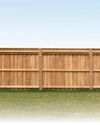There’s nothing wrong with using a good, old-fashioned hacksaw, but there are faster, easier ways to cut metal. In this article, we’ll show you power tool tips and techniques for cutting the types and thicknesses of metal that DIYers handle the most.

1. DITCH THE ABRASIVE GRINDER DISCS
An angle grinder fitted with an abrasive metal-cutting disc works well to cut all kinds of metal, including bolts, angle iron, rebar and even sheet metal. But the discs wear down quickly, cut slowly and shrink in diameter as you use them. Instead, we recommend using a diamond blade that’s rated to cut ferrous metal. These will last much longer, cut faster and cleaner, and wear down much slower than abrasive discs. You’ll find ferrous-metal-cutting diamond blades for $13 to $40 at home centers, hardware stores and online.
2. CUT METAL WITH YOUR CIRCULAR SAW
It may not be an obvious choice, but fitted with the right blade, a circular saw is a great metal-cutting tool. In our test, it cut through rebar like a hot knife through butter. You can cut mild steel up to about 3/8 in. thick using a ferrous-metal-cutting blade. Be careful, though! Hot metal chips will fly everywhere. Put on your safety gear, keep bystanders away, and cover anything you don’t want coated with metal chips. You’ll find ferrous-metal-cutting blades at home centers, hardware stores and online. There are two types: inexpensive steel-tooth blades and carbide-tooth blades ($8 to $40). Carbide-tooth blades are more expensive but will last longer.
3. CUT ALUMINUM WITH YOUR MITER SAW
This story is from the {{IssueName}} edition of {{MagazineName}}.
Start your 7-day Magzter GOLD free trial to access thousands of curated premium stories, and 9,000+ magazines and newspapers.
Already a subscriber ? Sign In
This story is from the {{IssueName}} edition of {{MagazineName}}.
Start your 7-day Magzter GOLD free trial to access thousands of curated premium stories, and 9,000+ magazines and newspapers.
Already a subscriber? Sign In

7 Bicycle Maintenance Tips
Keep your bike in tiptop shape and ride safe!

SETTING FENCE POSTS WITH EXPANDING FOAM
Any fence builder knows you need strong posts for a strong fence, and that means backfilling the postholes with a dense, hard material other than dirt.

PEBBLE MOSAIC STEPPING STONES
COLLECT SOME RIVER ROCK AND MAKE YOUR OWN UNIQUE STEPPINGSTONE PATH

EARTH-FRIENDLY WEED KILLERS
HEALTHIER CHOICES FOR HUMANS AND THE ENVIRONMENT

DIY! HYDROPONIC GARDEN
FRESH VEGETABLES AT YOUR FINGERTIPS

GROW MINI VEGETABLES
GROW A GARDEN IN A TINY SPACE!

BUILD A VERTICAL GARDEN
TIME TO GROW UP!

MODERN WATER FOUNTAINS
A SPLASH OF PEACE FOR YOUR PATIO

9 ALTERNATIVE USES FOR SAWDUST
Every fully stocked wood shop has a table saw. You can usually find a pile of sawdust under it, even if it's used only occasionally. If a shop has a belt sander or band saw, there's probably another pile of finer sawdust under that. Even people without stationary tools have sawdust accumulation on their workbenches.

INSULATE WITH FOAM
IT'S A GREAT ALTERNATIVE TO FIBERGLASS